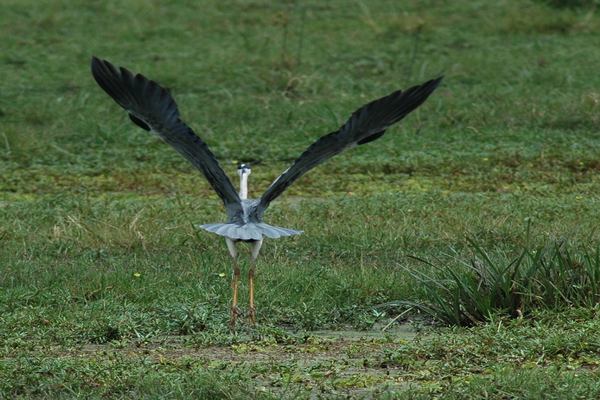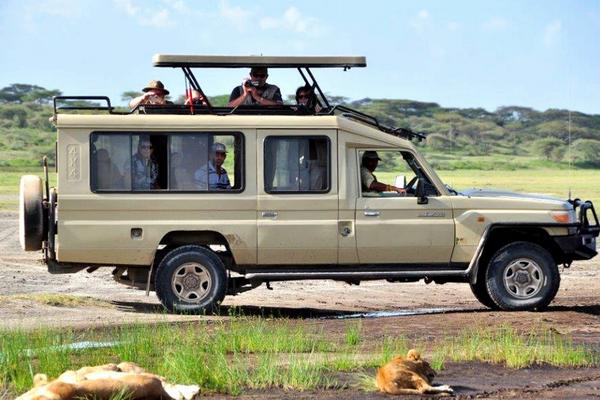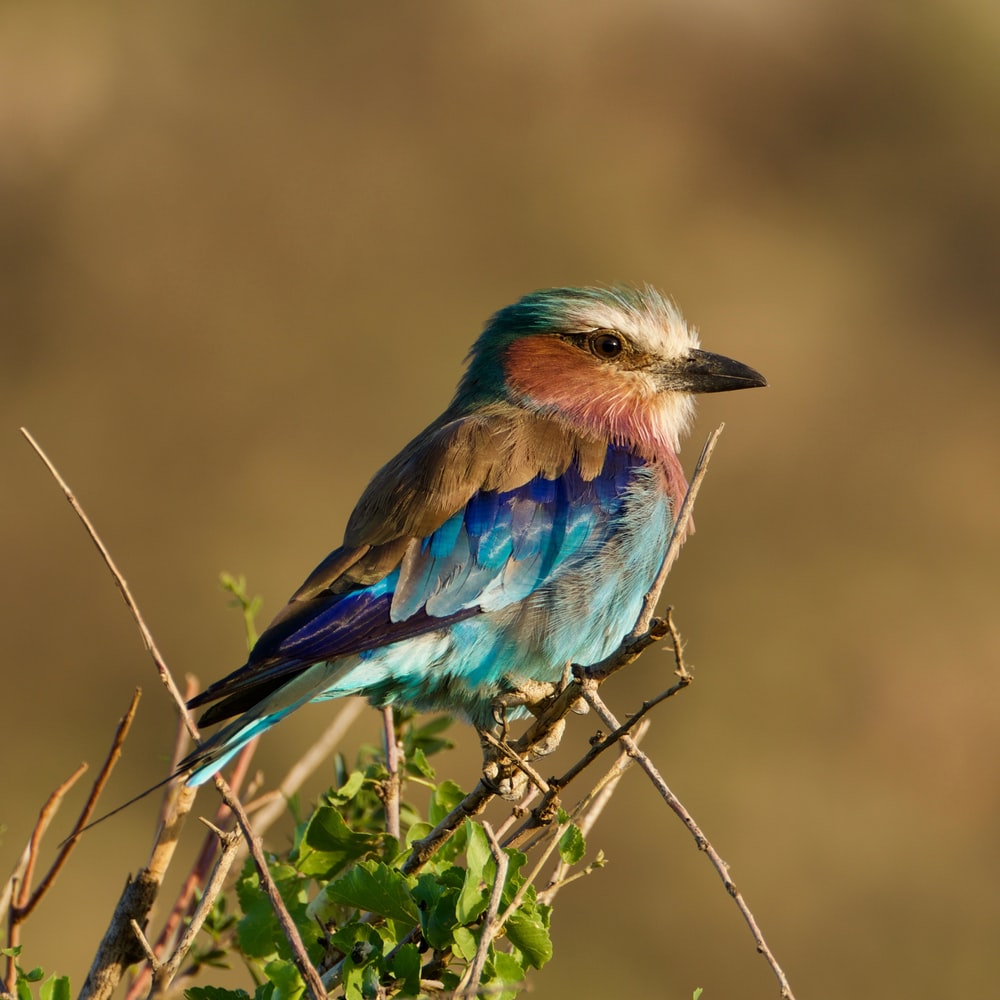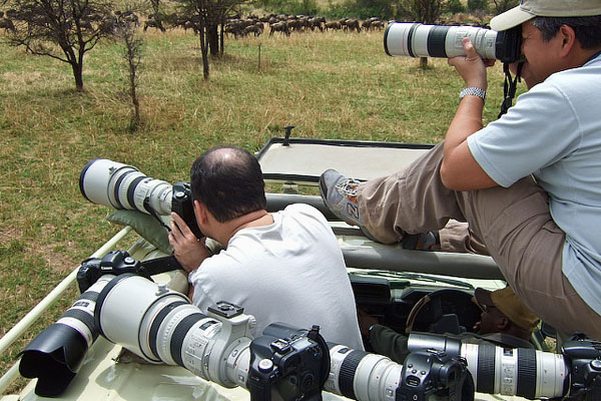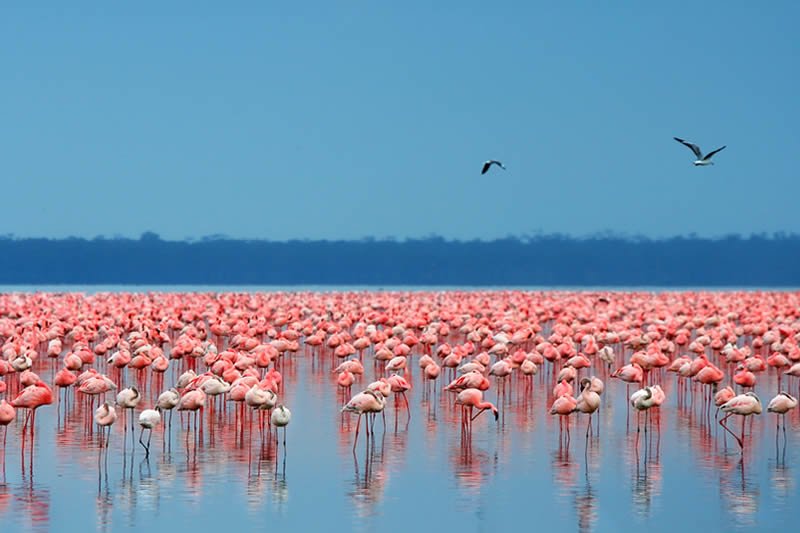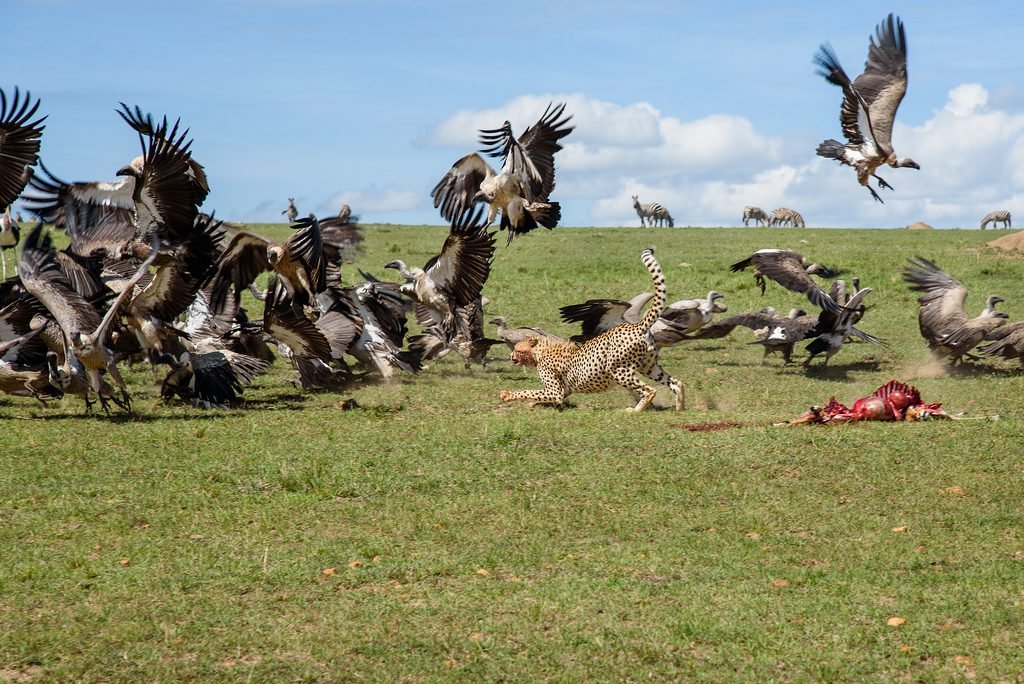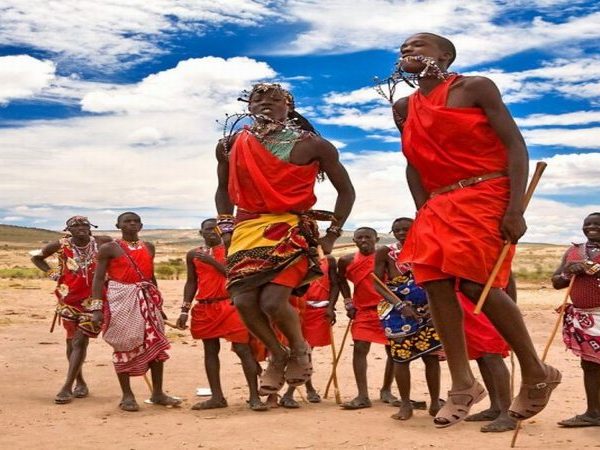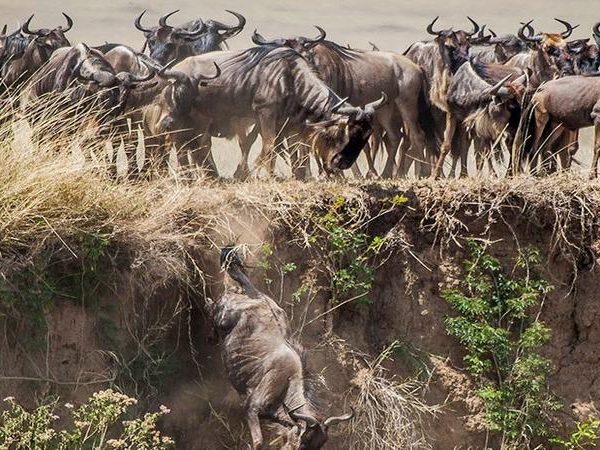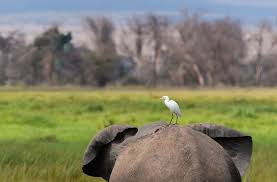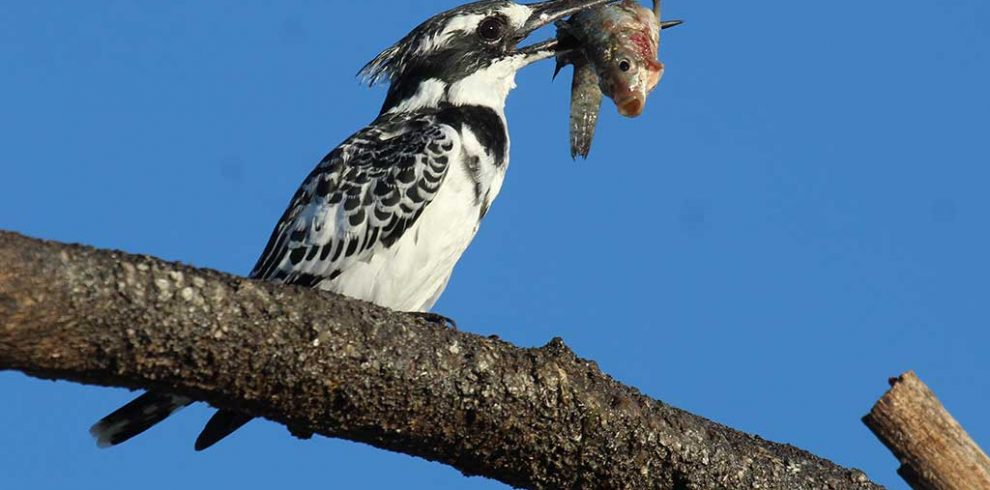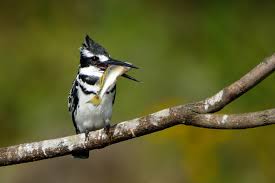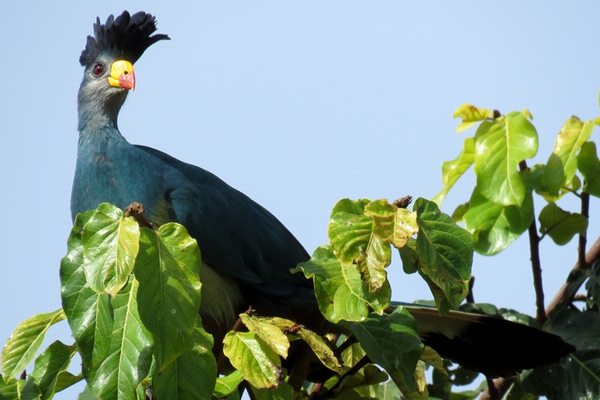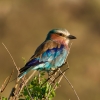10 Days Kenya Birding Tour Safari HolidaysMulti-day Tours & Adventures
Need help?
Text on Whatsapp +306946602365 or email support@gofreedly.com
About this experience
We depart Nairobi for The Rift Valley in Kenya, which is a birdwatcher's paradise, boasting a staggering diversity of avian life across various habitats. From the flamingo-filled soda lakes to the lush forests and acacia woodlands, each ecosystem shelters unique feathered residents. Here's a glimpse into what a birdwatching experience in this remarkable region might entail: -Early Start:
Your day begins before dawn, as the first light paints the sky. The air is crisp, and the anticipation palpable. Armed with binoculars, a field guide, and a healthy dose of enthusiasm, you embark on your birding adventure.
Lake Spectacle:
Your first stop might be Lake Nakuru, a UNESCO World Heritage Site renowned for its incredible flamingo population. Millions of these graceful creatures, with their vibrant pink plumage, create a mesmerizing spectacle against the backdrop of the lake's alkaline waters.
Forest Symphony:
Delving into the escarpment forests, the symphony of birdsong fills the air. Colorful weavers flit through the branches, while emerald-green turacos flash their iridescent wings. Endemic species like the Hartlaub's turaco and the Sharpe's akalat might grace you with their presence.
Savannah Safari:
The vast Savannah grasslands offer a different birding experience. Raptors like the majestic Verreaux's eagle soar overhead, while secretary birds stalk the plains with their long, elegant legs. Keep an eye out for the elusive Grey-crowned crane, a critically endangered species found in this habitat.
Hidden Gems:
Beyond the popular destinations, the Rift Valley and the Masai Mara holds hidden gems for birders seeking off-the-beaten-path adventures. The plains of the Masai Mara provides a unique habitat for birds like the augur buzzard and the rock martin. The semi-arid scrublands teem with colorful chats, shrikes, and sunbirds. The Masai Mara, which is home to a myriad species of birds, has the added attraction of being in one of the most renowned animal sanctuaries in the world. The days that you spend here adds exceedingly to the value of your Africa Birding Trip.
Unforgettable Encounters:
As the day unfolds, each new bird sighting brings a thrill. You might spot a rare migrant perched on a baobab tree, or witness a family of hornbills feasting on figs. These encounters, etched in your memory, become personal treasures from your Rift Valley and the Masai Mara birding expedition.
Beyond Birds:
But the Rift Valley and the Masai Mara is more than just birds. The breathtaking landscapes, diverse wildlife, and vibrant cultures enrich the experience. Witnessing a herd of elephants grazing on the plains, spotting a shy leopard in the twilight, or interacting with local communities adds depth and dimension to your journey.
A birding adventure in the Rift Valley and the Masai Mara is a chance to immerse yourself in the wonders of nature, connect with the avian world, and create memories that will last a lifetime. So, pack your binoculars, embrace the spirit of exploration, and get ready to be amazed by the incredible diversity of birds in this remarkable corner of the world.
Overview
Birding Tour Safari Holidays will engage you in a birding experience of a lifetime. The locations and destinations have been carefully selected to give you an opportunity to see some of Kenya’s best mammal and birding parks that are filled with nature’s wonders.
TOUR DURATION: 10 days
DEPARTURE TIME: 7.00 am
LANGUAGE/S: English
OPENING SEASONS: All year round
MEETING POINT: Nairobi downtown (Kencom/ Ambassador Hotel)
WHO CAN COME: This tour is suitable for everyone
Difficulty
EasyAbout this Experience
We depart Nairobi for The Rift Valley in Kenya, which is a birdwatcher's paradise, boasting a staggering diversity of avian life across various habitats. From the flamingo-filled soda lakes to the lush forests and acacia woodlands, each ecosystem shelters unique feathered residents. Here's a glimpse into what a birdwatching experience in this remarkable region might entail: -Early Start:
Your day begins before dawn, as the first light paints the sky. The air is crisp, and the anticipation palpable. Armed with binoculars, a field guide, and a healthy dose of enthusiasm, you embark on your birding adventure.
Lake Spectacle:
Your first stop might be Lake Nakuru, a UNESCO World Heritage Site renowned for its incredible flamingo population. Millions of these graceful creatures, with their vibrant pink plumage, create a mesmerizing spectacle against the backdrop of the lake's alkaline waters.
Forest Symphony:
Delving into the escarpment forests, the symphony of birdsong fills the air. Colorful weavers flit through the branches, while emerald-green turacos flash their iridescent wings. Endemic species like the Hartlaub's turaco and the Sharpe's akalat might grace you with their presence.
Savannah Safari:
The vast Savannah grasslands offer a different birding experience. Raptors like the majestic Verreaux's eagle soar overhead, while secretary birds stalk the plains with their long, elegant legs. Keep an eye out for the elusive Grey-crowned crane, a critically endangered species found in this habitat.
Hidden Gems:
Beyond the popular destinations, the Rift Valley and the Masai Mara holds hidden gems for birders seeking off-the-beaten-path adventures. The plains of the Masai Mara provides a unique habitat for birds like the augur buzzard and the rock martin. The semi-arid scrublands teem with colorful chats, shrikes, and sunbirds. The Masai Mara, which is home to a myriad species of birds, has the added attraction of being in one of the most renowned animal sanctuaries in the world. The days that you spend here adds exceedingly to the value of your Africa Birding Trip.
Unforgettable Encounters:
As the day unfolds, each new bird sighting brings a thrill. You might spot a rare migrant perched on a baobab tree, or witness a family of hornbills feasting on figs. These encounters, etched in your memory, become personal treasures from your Rift Valley and the Masai Mara birding expedition.
Beyond Birds:
But the Rift Valley and the Masai Mara is more than just birds. The breathtaking landscapes, diverse wildlife, and vibrant cultures enrich the experience. Witnessing a herd of elephants grazing on the plains, spotting a shy leopard in the twilight, or interacting with local communities adds depth and dimension to your journey.
A birding adventure in the Rift Valley and the Masai Mara is a chance to immerse yourself in the wonders of nature, connect with the avian world, and create memories that will last a lifetime. So, pack your binoculars, embrace the spirit of exploration, and get ready to be amazed by the incredible diversity of birds in this remarkable corner of the world.
24/7 Available Support
+254-714-729600Experience Highlights
• Lake Nakuru is truly an ornithologist’s paradise. Lake Nakuru is a great birding destination with more than 500 species recorded. The soda lake is a birding hotspot and supports a lot of birdlife, including large flocks of pelicans.• Naivasha is a haven for ornithologists and rock climbers, the cliffs of Hell’s Gate are breeding grounds for vultures, Verreaux’s Eagles, Augur Buzzard and thousands of swifts; and about 103 species of bird have been recorded
• The combination of amazing wildlife and stunning views across the open plains will guarantee you an unforgettable safari experience.
Description - What to expect
Day 1 Nairobi - Lake Baringo National ParkDepart Nairobi in the morning with a pickup from either your hotel/ Airport by your driver, short briefing by your Wild race Africa Safari expert in the office and later heading north as we drive down the Great Rift Valley enjoying the spectacular views. We drive past Mt. Logonot, Lake Naivasha, Lake Elementaita and Lake Nakuru, lunch en-route to arrive Lake Baringo in the afternoon, late afternoon boat trip to watch hippos, water birds and crocodiles, Dinner and overnight at Baringo soi lodge or similar.
Day 2 Lake Baringo - Lake Bogoria
Drive back a bit south after breakfast to lake Bogoria game reserve, we drop at the park gate, Where accompanied by game ranger we start our walk 3-4 hours walk towards South end of Lake Bogoria, At the hot springs we find our camp set up, Dinner and overnight at the hot spring Safari lodge.
Day 3 Lake Bogoria Super walking experience
Start our day by visiting the Flamingos and the hot springs, The springs shoot as high as 15 -18ft in the morning; CAUTION MUST BE TAKEN WHILE WALKING NEAR THE HOT SPRINGS AS THESE ARE SUPER HOT; We proceed south to the end while we turn to east side of the lake, Dinner and overnight at the lodge.
Day 4 Lake Bogoria - Lake Nakuru National park tours
Early morning breakfast before we climb eastern lake wall to catch a good view of the lake in the morning, We descend back to the bush camp for full breakfast, After breakfast we drive to Lake Nakuru National park arrive in Nakuru in time for lunch followed by afternoon game drive, Animals like rhino, lion, zebra, hyena, giraffe, buffalo, Waterbuck, Impala baboon troops and many kinds of water birds; pelicans, cormorants and hundreds of thousands of flamingos are found in this park, Dinner and overnight at Lake Nakuru Sopa Lodge or similar.
Day 5 Lake Nakuru – Lake Naivasha (Hell's gate National Park)
Game drives early in the morning, then return to the lodge for breakfast drive to Lake Naivasha by afternoon. Lunch at a camp in Naivasha followed by a visit to the adjacent Hells Gate National Park- this park can be explored on foot or by cycling- bicycles are available for hire at an extra cost. Dinner and overnight stay at Naivasha Sopa Lodge or similar
Hell’s Gate is located just beyond Lake Naivasha. Famous for its natural hot geysers, eagle and vulture breeding grounds, visitors have the choice of driving, walking, camping, and cycling and rock climbing within the park. Special location to view includes Fischer’s Tower, formerly a volcano’s plug, the Central Tower and Njorowa Gorges.
Two extinct volcanos: Olkaria and Hobley's are worth a trip. Natural steam vents rise from fissures in the volcanic rock. Obsidian, a striking black glassy rock formed from cooled molten lava, is a feature of this landscape. The resident game to view includes hyrax, buffalo, Masai Giraffe, eland, Coke’s Hartebeest, lion, leopard, and some cheetah. A haven for ornithologists and rock climbers, the cliffs of Hell’s Gate are breeding grounds for vultures, Verreaux’s Eagles, Augur Buzzard and thousands of swifts; and about 103 species of bird have been recorded. Dinner and overnight spent at Naivasha Sopa Lodge
Day 6 Lake Naivasha trip to Masai Mara Holidays
Break the camp soon after breakfast and drive to Masai Mara, arriving in time for lunch. Afternoon we proceed to the game drive in Maasai Mara game reserve. Dinner and overnight at the Mara Sarova game lodge.
Day 7 Explorer Maasai Mara Travel
Full day spent exploring the park in search of the big 5. Morning and afternoon game drives are offered. An optional hot air balloon safari can be arranged at an extra cost of US$ 450 per person. Dinner and overnight stay at Mara Sarova luxury tented camp.
Day 8 Explorer Maasai Mara Travel
Full days in the Masai, the extensive grasslands are a stronghold to the threatened, migratory Corncrake and the near-threatened Jackson’s widowbird. The bush and woodlands around the reserve also hold some unique bird species, more than 450 bird species have been recorded in the Mara, including 12 species of cisticola and birds of prey. Large numbers of palaerctic migrants winter in the area, including Caspian plovers and white storks. Other local and unusual birds in the Mara include Rock Cisticola, Rufous Bellied Heron, Denham’s Bustard, Black Coucal, Red Tailed chat, Pale Wren Warbler, Tabora Cisticola, Yellow-Bellied Hyliota, Green-capped Eremomela, and Magpie Shrike. Dinner and Overnight stay at the Lodge
Day 9 Explorer Maasai Mara Travel
Masai Mara safari, all day bird-watching in the Maasai Mara. Along the Mara River we’ll watch for African Finfoot, Schalow’s and Ross’ Turaco, Crested Guinea fowl, Woodland Kingfisher, Yellow-billed Barbet, Black-billed Weaver, Violet-backed Starling, and perhaps with luck, Pel’s Fishing Owl. Any tapping noise on the trees may be indicative of the relatively uncommon Woodpeckers (Golden-tailed and Fine-banded). Hopefully, we will be lucky enough to see some of the more difficult to see mammals such as Bat-eared Fox, Hunting Dog, Serval, and the delightful Banded Mongoose. Mara Sopa Lodge
Day 10 Masai Mara National Park - Back to Nairobi
After breakfast, we drive back to Nairobi, arriving in time for lunch at Toona Tree Restaurant where you can enjoy some good Italian food, Check-in to a day room at Nairobi hotel. Farewell dinner Later early in the evening will be hosted by our company at the world-famous Carnivore Restaurant considered “Africa’s greatest eating experience” (if you love barbecue it doesn’t get better than this), and home to the “Simba Saloon” one of the city’s most popular nightclubs. Thereafter, you will be transferred to the airport in time for your International departure flight
What's included, what's not
✔ Pick up & drop off within central Nairobi and along Mombasa road✔ Transportation in 6-8 seater luxury open roof 4×4 Mini-Van
✔ English speaking tour guide driver
✔9 nights’ accommodation in shared accommodation
✔ Game drives as per the itinerary
✔ Game & national parks entry fees
✔ 1-litre Mineral water per person per day
✔ Complimentary return airport transfers in Nairobi
✔ Three meals per day whilst on safari
✖ Drinks
✖ Cultural visits to Maasai Villages (USD 25/person)
✖ Pre and post-safari hotel accommodation in Nairobi
Language/s
- English
Cutoff time before activity
- One week
Good to know - practical information
Travel information you may find useful when planning your safari holiday tour to Africa. If you require any further details or have questions on something not covered by this list, please get in touch with Safaris team.Kenya
VISAS
Tourists must have a valid visa to visit Kenya. Your passport must also be valid for at least six months after the date of your arrival in the country. In 2017 Kenya introduced ‘eVisa’, the electronic tourist visa, although you can still apply for a visa manually on arrival at the Nairobi or Mombasa airport in Kenya. The new eVisa will replace the manual application process on arrival at the airport.
The transition to the new scheme has taken longer than expected. This means that you can still choose to apply for a visa on arrival at the Nairobi or Mombasa airport, or online before flying into Kenya.
Manual application for a visa on arrival in Kenya:
On arrival at the airport in Kenya, you will need to complete an application form and pay a fee of USD 50. The process is relatively smooth and fast. It’s handy to carry your own pen! In the field where you are requested to state your Kenyan address, please enter the name of the hotel/lodge where you are proceeding to spend your first night.
Electronic visa application for Kenya:
Please use the website www.evisa.go.ke to apply for an electronic eVisa. You may pay by credit card. The visa processing fee is USD 50, and there is a service charge of USD 1. The minimum period you can apply for a Kenyan visa is three months before your travel date.
The visa application process involves uploading your passport picture along with your passport photograph. Your visa shall be issued approximately five days after you register. You shall be required to print a copy of your electronic visa, bring it with you for presentation along with your passport on arrival in Kenya. If you have any problems or inquiries related to applying for an electronic visa, please contact the Kenyan Embassy in your country / region.
Other things you need to bear in mind with regard to your visa:
You shall be required to complete a landing card that will be issued to you on the plane, or at the visa desk when you enter Kenya.
You shall be required to complete an exit card, which will be provided to you in the departure terminal when leaving Kenya.
SAFARI ROADS IN KENYA:
All major Kenyan roads are tarred. However road surfaces vary depending on remoteness from Nairobi city and sometimes due to regular maintenance. Weather vulgarize May also affect the state of roads.
Many roads within the National Parks and game reserves are quite navigable and are not tarmacked.
Driving time on Kenyan roads vary from one safari point to another and are approximate. They may vary depending on traffic and road conditions.
CREDIT CARDS:
Credit cards Kenya: Most major credit cards (MasterCard, Visa and American Express) are widely accepted. In addition to credit cards, it is advisable to carry easily convertible currency in cash.
VACCINATION:
We advise you to contact a medical specialist or family doctor or even a licensed vaccination clinic well before traveling to Kenya.
ACCOMMODATION ON SAFARI:
Safari hotels/ lodges/ tented camps are carefully chosen and are named on the safari itinerary/program. Most are unique and add flavor/ romance to your safari tour. They are comfortable and sufficiently luxurious.
They vary from economy, comfort, superior comfort (applies for Masai Mara accommodation) and luxury options.
Luxury lodges blend nicely with the landscape and have rooms with all amenities you would expect from a good hotel. Tented camps are on permanent foundations and have en-suite bathrooms.
The amenities can include hot water bottles to warm your bed before you turn in coffee, tea and hot chocolate served in your tent as part of your early morning wake up call.
Except the tree lodges, most other lodges and camps have swimming pools.
DRINKING WATER & BOTTLED DRINKS:
Avoid drinking water straight from the tap.
Complimentary bottled drinking water will be provided in the safari vehicle.
Soft drinks, beer and other bottled beverages can be purchased at the lodges and camps throughout the safari as they have bars and comfortable lounges with fire places for those cool evenings. Tea or coffee is served after meals.
PACKING ON A SAFARI:
It is advisable to spread packing between you and your partner’s suitcases. This is in case of loss of luggage. All the important items and information should be carried in your hand luggage: passport, visa, airfare, insurance, credit cards, money and prescriptions if necessary.
You should carry information about your specific health condition plus malaria pills, any lifesaving medication (diabetics), anything used to treat allergies or a sudden stomach upset (maybe Imodium) and analgesic aspirin should all be kept accessible to you. Any expensive electrical equipment, such as a camera or computer should be well looked after.
Please note that all use, import and production of plastic bags, such as those we know from supermarkets, etc., are prohibited in Kenya. We therefore recommend that you avoid using plastic bags when packing your luggage. Use fabric bags instead, or bags made of a waterproof material other than plastic. If, for example, you are visibly carrying hand luggage in plastic bags upon your arrival in Kenya, you will be asked to hand them in. This also includes plastic bags from “Duty Free”, etc.
On light aircraft flights in Kenya the baggage allowance is limited to a maximum of 15 Kilograms, including camera and video equipment. Any additional luggage can be stored at the hotel in Nairobi until end of safari. Luggage and personal effects are at owner’s risk throughout the tour. Baggage insurance is recommended.
PHOTOGRAPHY / CAMERA ON SAFARI:
The recommended camera for a safari is a 35mm camera with automatic exposure and interchangeable lenses. For the best results in photographing wildlife (including birds), you should have a zoom lens. Remember to bring extra batteries for every camera and flash unit.
Also recommended are a few plastic bags that come in handy in protecting your camera if it gets especially dusty in some of the parks. Try to find a size that the entire camera will fit into. Most travelers average approximately 2-3 rolls of film for each day of the safari.
As film in East Africa will most likely be costly and hard to find, it is suggested that film be purchased before departure. During the day, almost any film speed will be fine. If you are using telephoto equipment, you will need more sensitive film for early morning and evening.
WEATHER & SAFARI IN KENYA:
You can make a safari in Kenya throughout the year.
January, February and March (High Season)
The three months are good for safari, the period is just after the short rain season, you may catch some bird species that are winter visitors from Europe. The grass is not so high enough to hinder your view of the animals. There shall be great opportunities to encounter large elephant herds.
April and May (low season)
This is the long rainy season, you can still enjoy your safari during this period. Tropical rain comes in bursts and lasts a few hours, mostly in the mornings and afternoons. The rains freshen up the nature and often enhance the safari experience.
June
The month of June is a good time to experience safari after the long rainy season. The large zebra herds cross from Tanzania to the Masai Mara game reserve ahead of the migration which happens from mid-July.
July to October (peak season)
Huge herds of wildebeest enter the Masai Mara from the Serengeti in Tanzania. Due to evolving climatic situations it may be a little difficult to give specific time for the start of migration. It is however safe to state that the great wildebeest migration is active at the Masai Mara by mid-July. Wildebeest start their return journey to Tanzania around September / October. The return process is devoid of drama.
November and December (shoulder season)
This is the short rainy season in Kenya. The short rain freshen the pastures and grass start to grow. The national parks and game reserves regain their vegetation.
SAFARI CLOTHING:
We recommend that you bring casual summer clothes that are easy to launder and quick to dry. Go for neutral colors that do not reflect the heat and do not show the inevitable safari dust. With cool morning and evening, layering is suggested. Laundry service is available in most safari lodges and tented camps which can help you replenish your supply of clean clothing, as you need it. Much of the time on safari is spent in the vehicle so lightweight and comfortable walking shoes are appropriate. The style is casual – even in the evening. For Dinner in Nairobi and at the Mount Kenya Safari Club, dress is smart casual. You will be in the sun a great deal and at these altitudes it is easy to sunburn very quickly. Pack a swimsuit and cover-up, as most of the safari accommodations have swimming pools.
CURRENCY:
Kenya’s currency is the Kenyan shilling (KSH). Check online for the current rate. You can exchange your convertible foreign currency in to shillings in a forex bureau and shall find the best rates at the airport. Small cash denominations are handy for tipping and minor expenses. You can also withdraw Kenya shillings at the ATM (VISA & MasterCard). Cash USD, Euro, British pounds are readily accepted in many outlets.
In Kenya, the unit of currency is Kenya Shilling. We recommend that you exchange money only as needed. You will find it easiest to make small purchases in local currencies, and will usually receive a better price. You may conveniently exchange money at all lodges and hotels at close to the bank rate, but the best exchange rates you get from the Forex Bureaus at the airport or Nairobi city.
CUSTOM DUTY KENYA:
Customs regulations are quite straightforward. The usual one bottle of spirits, 200 cigarettes, a reasonable amount of camera equipment, film and one tape recorder are allowed to enter Kenya duty free.
DRIVER / GUIDE:
Your safari Guide / Driver will be an integral part of your safari tour experience. You will spend many days together as he narrates the wonders of Kenya’s geography, history and of course the wildlife. Each safari guide is a local Kenyan, steeped in the traditions and folklore of his country as well as exceptionally knowledgeable in areas such as local flora and fauna, tribal lore and regional geography.
ELECTRICITY:
The voltage is 220; however, the plugs are different from those in North America or even of Europe. Due to the variations of the outlets, we suggest you travel with a variety of international adapter plugs as well as a voltage converter, which may be purchased as a set. The most commonly used adapter plug has 3 square prongs.
Important: note that lodges in the game parks may turn off their generators during the day and late at night (11pm – 10am), this means there will be no electricity at this time. Please recharge your video camera batteries at applicable times of the day, or carry extra batteries.
FEES & TAXES:
The safari tour price includes government taxes and service charges relating to accommodations and meals provided entrance fees to national parks and game reserves, and game ranger services (where obligatory).
GAME TROPHIES:
In Kenya, it is illegal to sell any product made from wild animals, including hides and skins, rhinoceros horn, elephant-hair bracelets, crocodile handbags, etc. Please note also that ivory is not legally sold in Kenya. Please note that it is illegal to bring into the U.S. anything made from elephant, rhino or crocodile products.
SAFARI GRATUITIES:
All hotel, lodges and Porterage gratuities are included on your safari price – these are referred to as service charge. It is however customary to tip the driver / guide at the end of the safari tour. The amount is dependent on your evaluation of the quality of the service rendered. The amount is also at your discretion, you are welcome to provide additional compensation to any staff that has provided special services. A bar gratuity of $ 5 is acceptable.
TRAVEL INSURANCE:
Travelers should have medical insurance, as they will be responsible for all medical expenses they may incur while on safari.
LANGUAGES:
Kenya has many different dialects and local languages. English is the official language while Kiswahili is the national language, these provides a common identity in the vast country. English is the instructional language in all schools. A few Swahili phrases learnt in advance shall enhance your local interactions.
LAUNDRY:
Laundry services are available at safari lodges and camps where more that one night is being spent. Dry cleaning is only available in Nairobi and Mombasa.
MEALS:
All meals are included on safari. This is from lunch on day 1 until lunch on last day of safari tour. During your safari all meals shall be provided by your respective lodge or tented camps or at restaurant on safari route. Packed / picnic lunches are provided during full day game viewing drives and on long day drives. The quality of the cuisine in East Africa game lodges and camps is superb, with all meats, vegetables and fruits arriving fresh daily from the surrounding farmland areas.
MEDICAL FACILITIES:
Nairobi has excellent international medical facilities. Most camps and lodges have a doctor on call who is experienced with common travel related ailments. We suggest that you make certain your health insurance has adequate coverage, as once you are returned to Nairobi any further medical expenses will need to be covered by you.
SAFETY:
Visitors should exercise the same common sense as one would in any other part of the world. Normal care and sensible precautions should be taken. Please do not leave cash, jewelry or traveler cash unattended in hotel rooms. Every lodge or hotel has a safe deposit facility for your valuables safe keeping. Do not wear flashy jewelry, or leave handbags and photographic equipment unattended in public places.
SAFARI SOUVENIR SHOPPING:
Affordable and attractive baskets, copper jewelry, batik cloth, beads, carvings, Kenya coffee and tea are all for sale in the shops and markets of Nairobi. Boutiques sell fine art and handicrafts, gemstones and jewelry, including a locally mined semiprecious stone called tanzanite.
Most popular are items carved from wood, which range from small trinkets such as animal head salad spoons and letter openers, to world-class ebony sculpture. Carved soapstone from napkin rings and candlesticks to complete chess sets, are also attractive.
Bags woven from sisal and baobab are available in myriad colors, sizes, styles and shapes much more artistic and unique than those reaching the US Market. East African artisans have responded to the increasing appreciation of tribal artifacts with a variety of stunning original pieces and faithful reproductions: drums, headrests, stools, shields, and beaded necklaces and belts from various parts of the region. Some of the most prized pieces feature elaborately worked silver, malachite and amber beads. We suggest that you take all goods you purchase with you as shipping and duty cost may easily exceed the cost of the item.
TRANSFERS TO AND FROM THE AIRPORT
We provide complimentary airport hotel transfers on arrival. At your time of departure, we shall again transfer you to the Nairobi airport.
SAFARI TRANSPORTATION:
Our experienced and knowledgeable safari Guide / Driver shall collect you up at Nairobi Airport, Nairobi local hotel or local residence. He will take you on safari and other sightseeing adventures and return you back to the hotel or airport on your last day.
Because most of the safari journey includes most hours of safari trip, the quality of the safari vehicle is of high importance. As much of the journey is long hours on the trail on wildlife, the quality of the ground vehicle is of the utmost importance.
Each comfortable safari vehicle carries a maximum of 6/7 guests, thus providing a guaranteed window seat and access to the roof hatch. Our safari Guide / Driver have a mechanical background and will fix any break any simple breakdown or if there is a major breakdown another van will be provided as soon as possible.
Reviews
https://www.safaribookings.com/reviews/p1923Great experiences not to be missed!
5/5
We started our trip with not much knowledge about Kenya. We did some research and decided to do birding and safari for 15 days in Kenya. I contacted Claudious and their response was amazing. Claude gave us a much clearer view of what and where we should do. He did a great job when it came to my questions, very promptly and as much details as possible. I would also like to thank Joshua, our guide and driver. He took very good care of us and made sure we were all good and happy. As bird photographers, we loved that he stopped wherever we told him to and as long as we wanted. He looked happy to do his job and I saw a clean van awaited us every morning. We went to Baringo for 2 days and that was where Claudious hired a professional bird leader, Francis, for us. We were astonishingly stunned by his knowledge and professionalism. Birdingwise, those 2 days were very impressive.
We had a great memorable trip in Kenya and would recommend Claudious to anyone I know.
Tour Supplier
Claudious Tours and Safaris LtdDescription - What to expect
Day 1 Nairobi - Lake Baringo National ParkDepart Nairobi in the morning with a pickup from either your hotel/ Airport by your driver, short briefing by your Wild race Africa Safari expert in the office and later heading north as we drive down the Great Rift Valley enjoying the spectacular views. We drive past Mt. Logonot, Lake Naivasha, Lake Elementaita and Lake Nakuru, lunch en-route to arrive Lake Baringo in the afternoon, late afternoon boat trip to watch hippos, water birds and crocodiles, Dinner and overnight at Baringo soi lodge or similar.
Day 2 Lake Baringo - Lake Bogoria
Drive back a bit south after breakfast to lake Bogoria game reserve, we drop at the park gate, Where accompanied by game ranger we start our walk 3-4 hours walk towards South end of Lake Bogoria, At the hot springs we find our camp set up, Dinner and overnight at the hot spring Safari lodge.
Day 3 Lake Bogoria Super walking experience
Start our day by visiting the Flamingos and the hot springs, The springs shoot as high as 15 -18ft in the morning; CAUTION MUST BE TAKEN WHILE WALKING NEAR THE HOT SPRINGS AS THESE ARE SUPER HOT; We proceed south to the end while we turn to east side of the lake, Dinner and overnight at the lodge.
Day 4 Lake Bogoria - Lake Nakuru National park tours
Early morning breakfast before we climb eastern lake wall to catch a good view of the lake in the morning, We descend back to the bush camp for full breakfast, After breakfast we drive to Lake Nakuru National park arrive in Nakuru in time for lunch followed by afternoon game drive, Animals like rhino, lion, zebra, hyena, giraffe, buffalo, Waterbuck, Impala baboon troops and many kinds of water birds; pelicans, cormorants and hundreds of thousands of flamingos are found in this park, Dinner and overnight at Lake Nakuru Sopa Lodge or similar.
Day 5 Lake Nakuru – Lake Naivasha (Hell's gate National Park)
Game drives early in the morning, then return to the lodge for breakfast drive to Lake Naivasha by afternoon. Lunch at a camp in Naivasha followed by a visit to the adjacent Hells Gate National Park- this park can be explored on foot or by cycling- bicycles are available for hire at an extra cost. Dinner and overnight stay at Naivasha Sopa Lodge or similar
Hell’s Gate is located just beyond Lake Naivasha. Famous for its natural hot geysers, eagle and vulture breeding grounds, visitors have the choice of driving, walking, camping, and cycling and rock climbing within the park. Special location to view includes Fischer’s Tower, formerly a volcano’s plug, the Central Tower and Njorowa Gorges.
Two extinct volcanos: Olkaria and Hobley's are worth a trip. Natural steam vents rise from fissures in the volcanic rock. Obsidian, a striking black glassy rock formed from cooled molten lava, is a feature of this landscape. The resident game to view includes hyrax, buffalo, Masai Giraffe, eland, Coke’s Hartebeest, lion, leopard, and some cheetah. A haven for ornithologists and rock climbers, the cliffs of Hell’s Gate are breeding grounds for vultures, Verreaux’s Eagles, Augur Buzzard and thousands of swifts; and about 103 species of bird have been recorded. Dinner and overnight spent at Naivasha Sopa Lodge
Day 6 Lake Naivasha trip to Masai Mara Holidays
Break the camp soon after breakfast and drive to Masai Mara, arriving in time for lunch. Afternoon we proceed to the game drive in Maasai Mara game reserve. Dinner and overnight at the Mara Sarova game lodge.
Day 7 Explorer Maasai Mara Travel
Full day spent exploring the park in search of the big 5. Morning and afternoon game drives are offered. An optional hot air balloon safari can be arranged at an extra cost of US$ 450 per person. Dinner and overnight stay at Mara Sarova luxury tented camp.
Day 8 Explorer Maasai Mara Travel
Full days in the Masai, the extensive grasslands are a stronghold to the threatened, migratory Corncrake and the near-threatened Jackson’s widowbird. The bush and woodlands around the reserve also hold some unique bird species, more than 450 bird species have been recorded in the Mara, including 12 species of cisticola and birds of prey. Large numbers of palaerctic migrants winter in the area, including Caspian plovers and white storks. Other local and unusual birds in the Mara include Rock Cisticola, Rufous Bellied Heron, Denham’s Bustard, Black Coucal, Red Tailed chat, Pale Wren Warbler, Tabora Cisticola, Yellow-Bellied Hyliota, Green-capped Eremomela, and Magpie Shrike. Dinner and Overnight stay at the Lodge
Day 9 Explorer Maasai Mara Travel
Masai Mara safari, all day bird-watching in the Maasai Mara. Along the Mara River we’ll watch for African Finfoot, Schalow’s and Ross’ Turaco, Crested Guinea fowl, Woodland Kingfisher, Yellow-billed Barbet, Black-billed Weaver, Violet-backed Starling, and perhaps with luck, Pel’s Fishing Owl. Any tapping noise on the trees may be indicative of the relatively uncommon Woodpeckers (Golden-tailed and Fine-banded). Hopefully, we will be lucky enough to see some of the more difficult to see mammals such as Bat-eared Fox, Hunting Dog, Serval, and the delightful Banded Mongoose. Mara Sopa Lodge
Day 10 Masai Mara National Park - Back to Nairobi
After breakfast, we drive back to Nairobi, arriving in time for lunch at Toona Tree Restaurant where you can enjoy some good Italian food, Check-in to a day room at Nairobi hotel. Farewell dinner Later early in the evening will be hosted by our company at the world-famous Carnivore Restaurant considered “Africa’s greatest eating experience” (if you love barbecue it doesn’t get better than this), and home to the “Simba Saloon” one of the city’s most popular nightclubs. Thereafter, you will be transferred to the airport in time for your International departure flight
More from Claudious Tours and Safaris Ltd
- Masai Mara Safari: 3-day Masai Mara Safari Tour from Nairobi
- Masai Mara, Kenya , KE €1,090.00 / group of 2
- Masai Mara Safari: 4-Day Fly-In Masai Mara Safari Adventure
- Masai Mara, Kenya , KE €2,096.00 / group of 2
- Amboseli Safari: 3-day Amboseli Park Safari Tour from Nairobi
- Amboseli Pask, Kenya , KE €976.00 / group of 2
- From Mombasa: 4-Day Tsavo West & Amboseli Lodge Safari
- Taita-Taveta, Kenya , KE €923.00 / person
